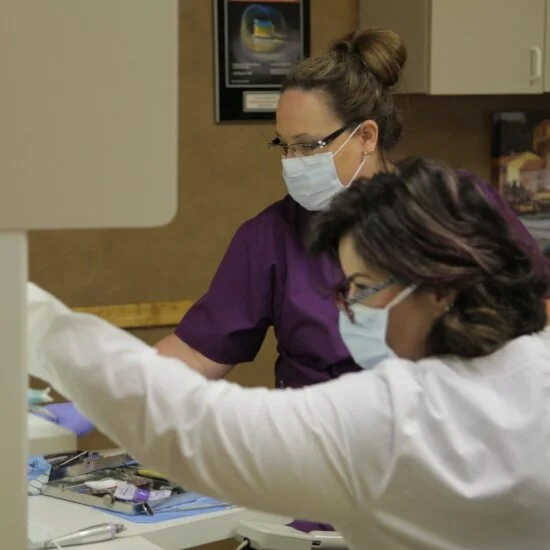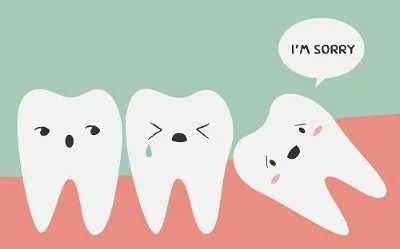Why Smart People get Their Wisdom Teeth Removed
There used to be more room in the human jaw to accommodate our third set of molars, also called ‘wisdom teeth’. But, modern diet no longer consists of the kinds of foods we need to make the jaw develop the way it used to, so consequently, our jaws are smaller and no longer have enough space to fit another set of molars.
Your dentist is watching.
Removal--Yay or Nay?
As a young adult, it may seem like a frivolous activity to have our wisdom teeth taken out, especially if they aren’t bothering anything. But, the wisdom teeth sometimes try to grow perpendicularly, into the roots of the other teeth, or crowd their way into the little space available and damage the teeth next to them. In addition, they can cause infections if they’re partially exposed as the result of food getting caught in the crevices. Cysts and benign tumors (and, rarely, cancer) can develop from unerupted wisdom teeth, severe enough that they can cause quite a lot of damage before it’s caught, so it’s a case of getting rid of teeth you don’t need or want before they ever start to make trouble.
When should they be removed?
Roots develop after the tooth!
Since the tooth itself will grow before it forms roots, it’s best to have them removed before the roots develop. The tooth part usually starts to grow after the second set of molars. So, we start watching somewhere around high school, and by young adulthood, they should be formed enough to remove. Some very lucky people never grow wisdom teeth. Your dentist will keep an eye on them during you periodic exams to help you determine at what point it’s best to have them removed.
What happens if I wait?
Some dentists swear that wisdom teeth, left to their own devices, will start to give a patient problems right before their wedding, a trip to Europe, exciting new job prospect, or some other event the patient is eagerly anticipating.
In addition, if you are over the age of 25, it is quite often necessary to include a bone graft to ensure that the jaw successfully heals following a wisdom tooth removal. This can help prevent problems such as gum disease from forming.
While bone grafting is a simple and painless procedure, it’s a step which isn’t necessary if the individual has their wisdom teeth taken out before age 25.
Who should remove them?
As a result of wanting the very best care possible for our patients, we always recommend wisdom tooth extraction be performed by an expert. If the surgery isn’t performed by someone who specializes in wisdom tooth removal, it can have a high complication rate.
Like speeches and oral presentations at school, it’s best to be the first one in the office for your wisdom tooth removal. Some people get nervous, and an early appointment lessens the amount of time spent waiting. It’s also best to have it done sooner, rather than later, earlier in the week rather than later in the week, and during a time when you have about a week to recover. Spring break, summer vacation, or another time when you don’t have a full load of responsibilities are all good choices for wisdom tooth removal scheduling.
If you need a gentle, caring dental team, please call Jennifer Fineberg’s office at (623) 362-2550. We’ll give you the very best dental care we can!


